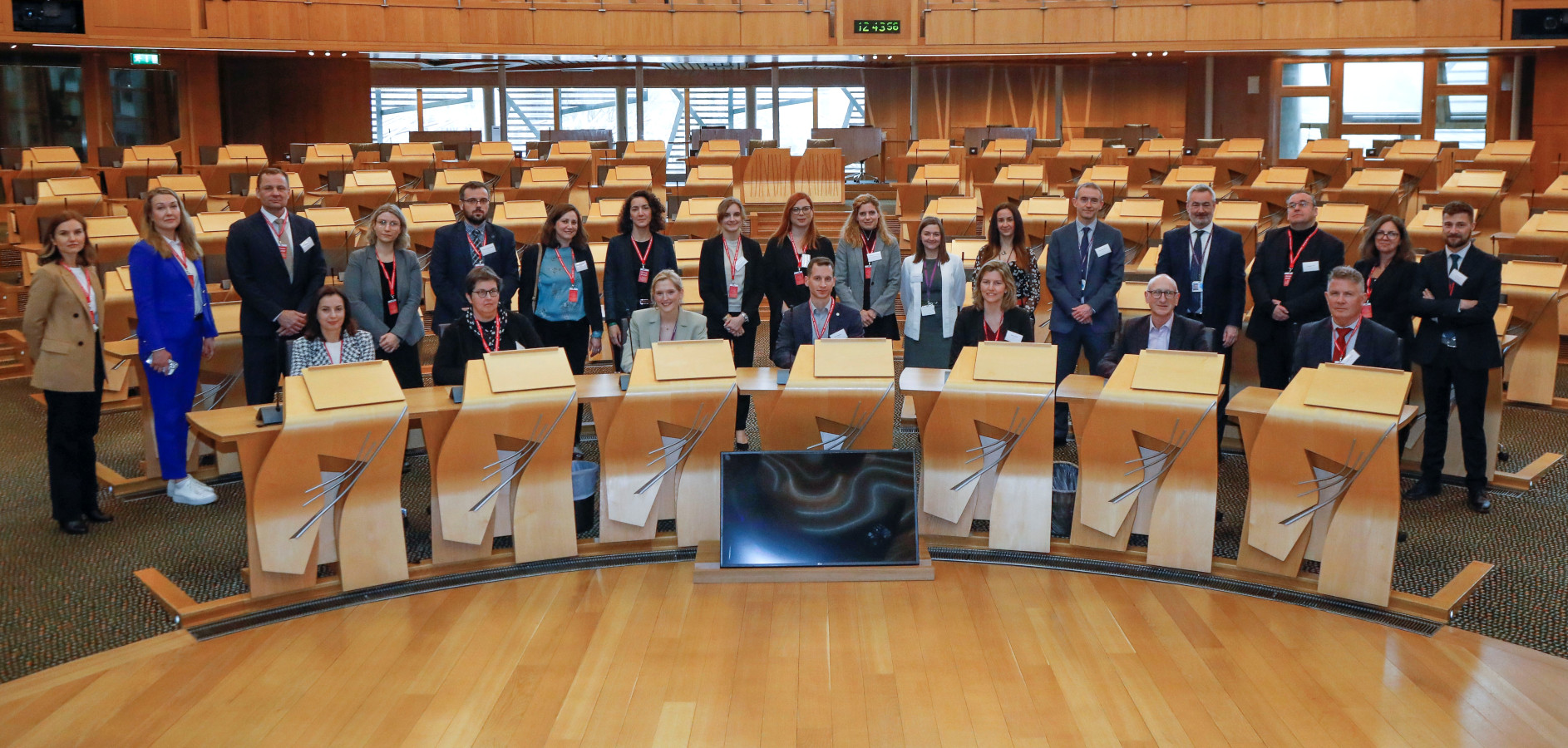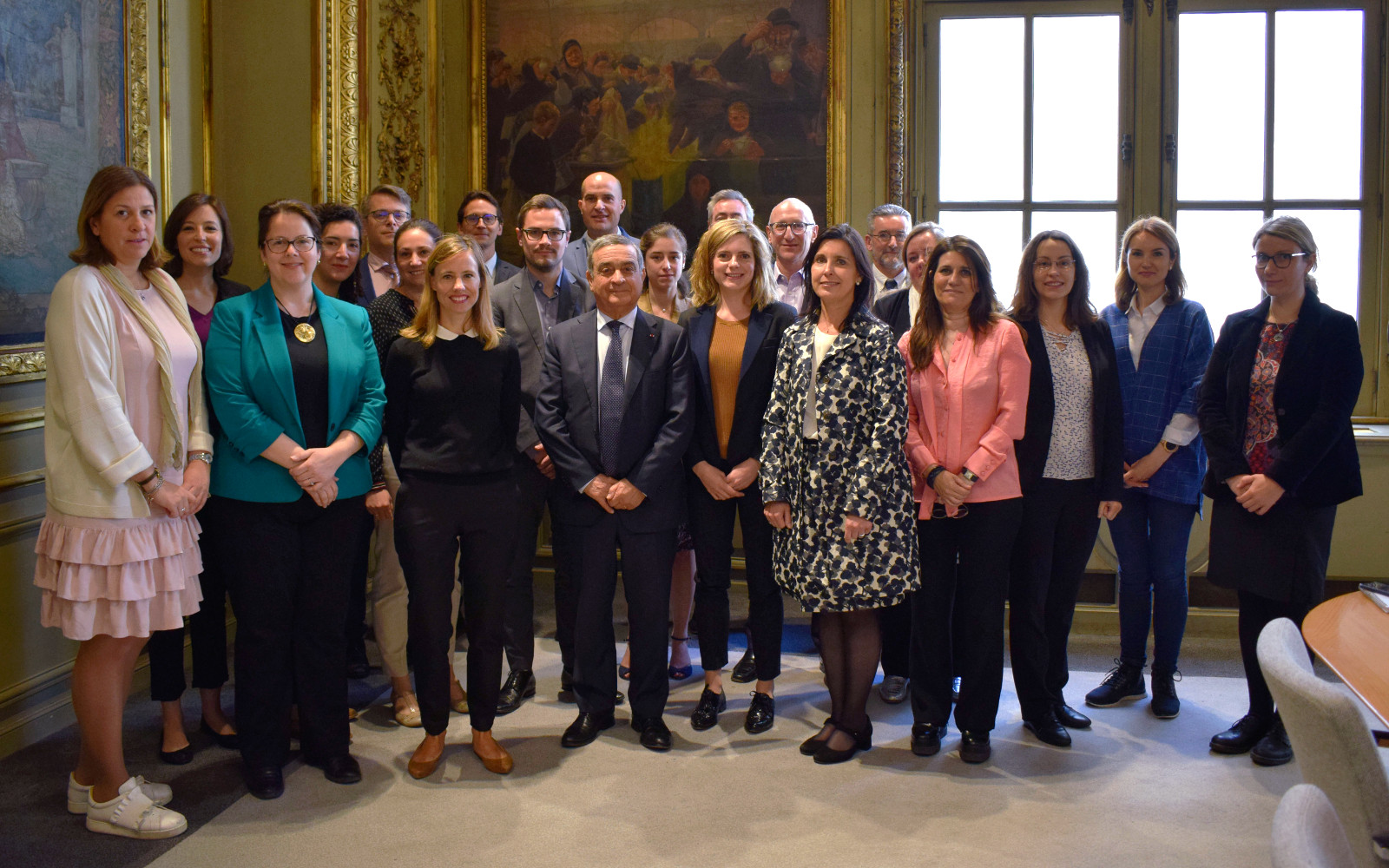Instruction for the monitoring, inspection and management of the relationship with interest groups (lobbies) in the Metropolitan Area of Barcelona (AMB) and its associated entities
A. - Background
1.- Interest groups (Lobbies)
In accordance with the definition in article 2 g) of Law 19/2014, of 29 December, on transparency, access to public information and good governance a lobby (group of interest according the literality of the law) is a person or a corporate entity who participate in public policies or in decision-making processes in Catalonia with the aim of influencing the orientation of these policies in defence of a private interest or of third parties interest, or a general interest.
2.- The register of lobbies in Catalonia
The Decree-Law 1/2017 of 14 February 2017, published in the Official Journal of the Generalitat of Catalonia on 16 February, and ratified by the Parliament of Catalonia on 8 March 2017 (DOGC of 27 March) creates and regulates the Register of interest groups in Catalonia.
In accordance with the article of the aforementioned Decree-Law, the Register of Interest Groups in Catalonia acts as a register of interest groups for the Administration of the Generalitat, local authorities and public bodies referred to in article 3.1.b and c of Law 19/2014. The objective is to make it possible to have public knowledge of the interest groups that act before each of the Administrations or public institutions, as well as of the activities of influence or intermediation that they carry out before them. The Government of Catalonia (Generalitat) have to organize and manage the register. The other functions, monitoring, inspection, management and sanction may correspond to each of the administrations and institutions concerned.
The detailed regulation of the Register of interest groups in Catalonia is contained in Decree 171/2015 of 28 July, references to the Register of interest groups of the Administration of the Generalitat and its public sector are to be understood as references to the Register of interest groups in Catalonia, in the new name given by Decree Law 1/2017.
3.- Adhesion of the Metropolitan Area of Barcelona (AMB) to the register of lobbies of Catalonia
The Transparency Agency, using the powers assigned to it by the Presidential Decree of 14 December 2015, regarding the function of ensuring compliance with the obligations established by the transparency law with regard to lobbies, promoted the adoption of the following agreement (by the Metropolitan Council at its session of 28 February 2017) :
MANIFEST the will of the Metropolitan Area of Barcelona to adhere to the Register of Interest Groups of Catalonia, created and regulated by Decree 1/2017, of 14 February, which is organized and managed by the Administration of the Generalitat of Catalonia, who is responsible for the acts of inscription and for the other legally foreseen actions, without prejudice to the powers that correspond to the AMB, through the Transparency Agency, which in any case will include monitoring, inspection, management and sanction.
In addition, in the Metropolitan Council of December 2017 was approved the Unit of Code of Ethics and Registration of Lobbies in the Transparency Agency .
In accordance with the foregoing, those person or corporate having the status of interest group who wish to interact with the Metropolitan Area of Barcelona must register in the Register of Interest Groups of Catalonia so that all the activities carried out with the aim of directly or indirectly influencing the processes of drawing up or applying public policies and decision-making, including contacts with authorities and public officials, civil servants and staff serving the institutions, must be incorporated.
4.- Preliminary considerations and criteria
- The exercise of the rights after a public administration is not a lobby activity.
- Despite the name "interest group" which seems to refer to a collective, a natural person can also be an interest group (lobby).
- Platforms, networks or other forms of collective activity must also be registered which, although they do not have legal personality, constitute a de facto a source of organized influence.
- Registration is free of charge and it is necessary just one registration for all the Catalan administration.
- Registration can be generic for all Catalan public bodies.
- Groups must register even if they are not domiciled in Catalonia. What determines the obligation of registration is the administration before which the influence is exerted. If there is any doubt about the need to register, the recommendation of the Directorate General of Legal Entities of the Government of Catalonia is that the registration must be done.
The following activities are not subjected to lobby register:
- Those relating to the provision of legal or professional advice directly linked to defending interests affected by administrative proceedings, activities aimed at informing a client about a general legal situation, conciliation or mediation activities carried out within the framework of the law, or advisory activities carried out for informative purposes for the exercise of rights or initiatives established by the legal system.
- Activities carried out by natural persons when they are interested in the situation or functioning of metropolitan public services before metropolitan elected representatives, under the terms of articles 61.1 of Law 19/2014 on Transparency, access to public information and good governance, and of article 139 of Law 8/1987, of 15 April, Municipal and Local Regime of Catalonia.
- Meetings between natural persons and senior officials, spontaneously or for reasons of personal or family treatment, which do not imply any desire to influence political or public decision-making, and so can be interpreted from common sense.
- Activities carried out by persons or organizations, as successful tenderers of a public contract, granted, parts of an agreement, within the framework of their execution and exclusively for the formalization, management, monitoring or execution.
- Activities made within the framework of participation processes or public information consultation in a regulatory process.
- Activities carried out by trade unions and corporate associations in defense and promotion of their own economic and social interests (which does not exclude the obligation of subjective registration in the register of interest groups).
The experience of the operation of the Register at the level of the Government (Generalitat of Catalonia), as well as the activities carried out by lobbies has led to the establishment of consolidated interpretative criteria on in different fields such as public procurement, etc., which may serve to evaluate the nature of the activity to be registered.
B.- Concertation protocol
Regarding lobby activity at the Metropolitan Area of Barcelona the Transparency Agency is responsible to management, monitoring, validation for publication and supervision, through the SERGI system (initials in Catalan of Seguiment de les Relacions amb els Grups d'interès/ Following of the relations within Interests Groups).
It is an essential requirement that lobbies make its inscription with the Registry through the Register of the Generalitat of Catalonia (following link: http://justicia.gencat.cat/ca/tramits/tramits-temes/registre-grups-interes )
Office staff in charge of the agenda of the elected officials with executive responsibility (in the case of the Metropolitan Area are Presidency, Executive Vice-Presidency, Area Vice-Presidents), and for the rest of the senior officials, Area Directors and Metropolitan Area Service Directors, shall follow the following protocol in arranging meetings, hearings and contacts:
1. Requirement of registration number. When contacts, meetings and hearings, with interest group (lobby) the number of inscription to the Registry is required. No meeting will be arranged with an interest group (lobby) that has not previously been registered, except in special cases, where the lobby is responsible of registrate after the meeting.
2. Responsibility for the registration and management of the Register . The Generalitat of Catalonia (Catalan Government) is responsible for the organization, management and registration. So, doubts regarding the processing and/or the registration requirements, interested should contact the Department of Justice of the Generalitat of Catalonia (Directorate General of Law and Legal Entities) grupsinteres.dj@gencat.cat.
3. Fulfillment of the AMB form for meetings. The registration of meetings, contacts and hearings will be done through the SERGI system.
4. No registered lobby is able to arrange meetings, hearings, interviews, etc. in the following cases:
4.1. If its registration is in process.
4.2. If the lobby has commit to inscribe with the form provided. The corresponding form can be found at: http://justicia.gencat.cat/ca/serveis/formularis/grups_interes/
This possibility is only allowed for the first meeting during a period of 20 working days. For next meetings expired this period, an effective registration in the Register will be required.
4.3. Exceptionally, meeting with lobbies can be made in a third case. When that occurs the person acting on behalf of the lobby must be provided with the model declaration of commitment, sign it and entry in the Register and send an e-mail with the documentation to the Government of Catalonia: grupsinteres.dj@gencat.cat.
5. The Transparency Agency monitor the information relative to lobbies and its meetings with AMB senior officials. The general information will be made public with guaranteed protection of personal data and will be regularly updated.
C.- Entry into force
This instruction shall enter into force on 15 June 2018.
Presidential Decree 42/2018, of 24 May, approving the Instruction for the monitoring, inspection and management of the relationship with interest groups (lobbies) in the Metropolitan Area of Barcelona (AMB) and its associated entities [in Catalan]




